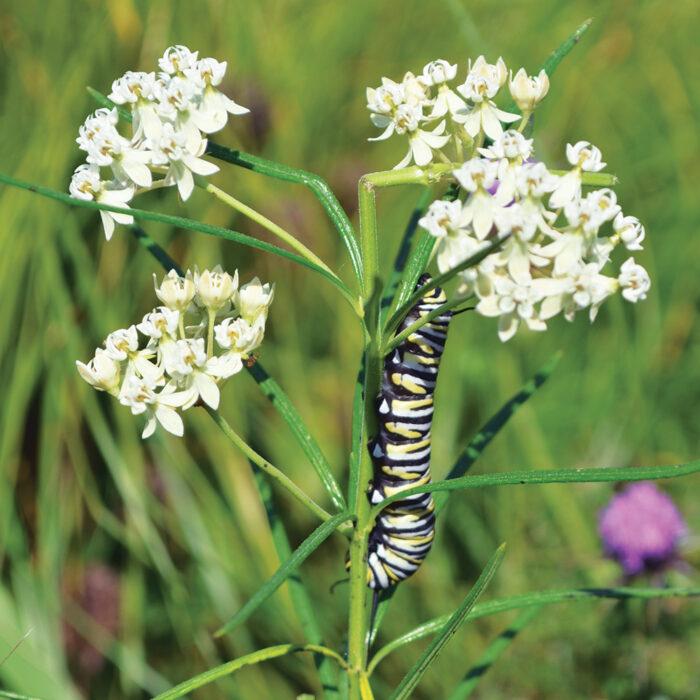
Whorled Milkweed
Asclepias verticillata
Zones: 3–9
Size: 1 to 2½ feet tall and 1 to 2 feet wide
Conditions: Full sun to partial shade; adaptable to a wide range of well-drained soil types
Native range: Central and eastern United States, southern Canada
Blooming later into summer than most other milkweeds, whorled milkweed puts on a fl oral show that frequently continues unabated from June until September and attracts a wide range of pollinators, including monarchs. Creamy white umbels of lightly fragrant fl owers glow atop unbranched stems clad in whorls of needle-like leaves. Because this species is poisonous to livestock, it is considered a noxious weed in pasture areas; in a garden setting, it is left alone by both rabbits and deer. Spreading by rhizomes and by seed, it is particularly durable in sandy, gravelly, well-drained soil.
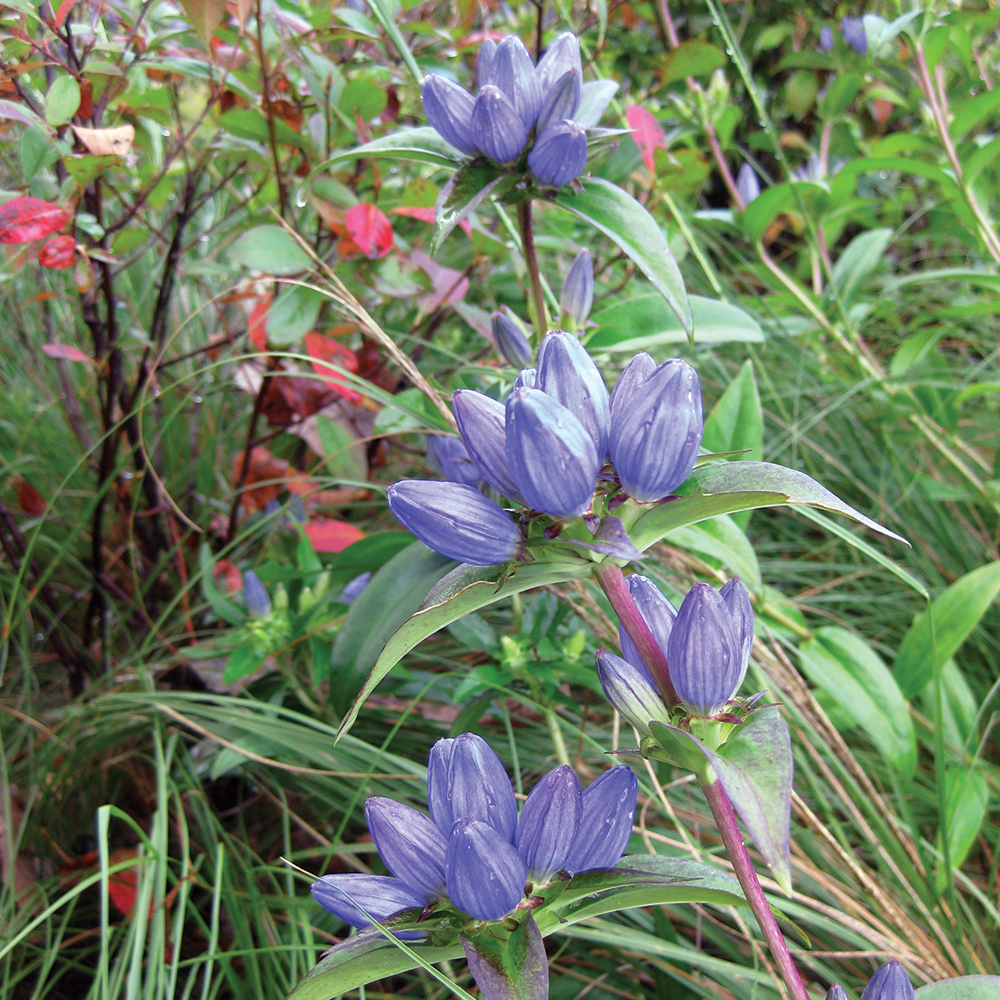
Closed Bottle Gentian
Gentiana andrewsii
Zones: 3–7
Size: 1 to 2 feet tall and 1 to 1½ feet wide
Conditions: Full sun to partial shade; moist, rich soil
Native range: Northeastern and central North America
I’m always smitten when I see the cylindrical, deep blue fl owers of closed bottle gentian in late summer and early fall. Each nonbranching stem of this amazing native plant supports many fl owers that are nearly closed at their tips and never truly open. This fl ower architecture challenges strong bumblebees to force their way into the bloom, ensuring pollination. Requiring very little care once established, this clump-forming, deer-resistant perennial is a great addition to any wildfl ower garden with fertile, consistently moist soil. Consider planting it alongside some supportive neighbors that will help to keep the heavy fl ower stems upright and visible.
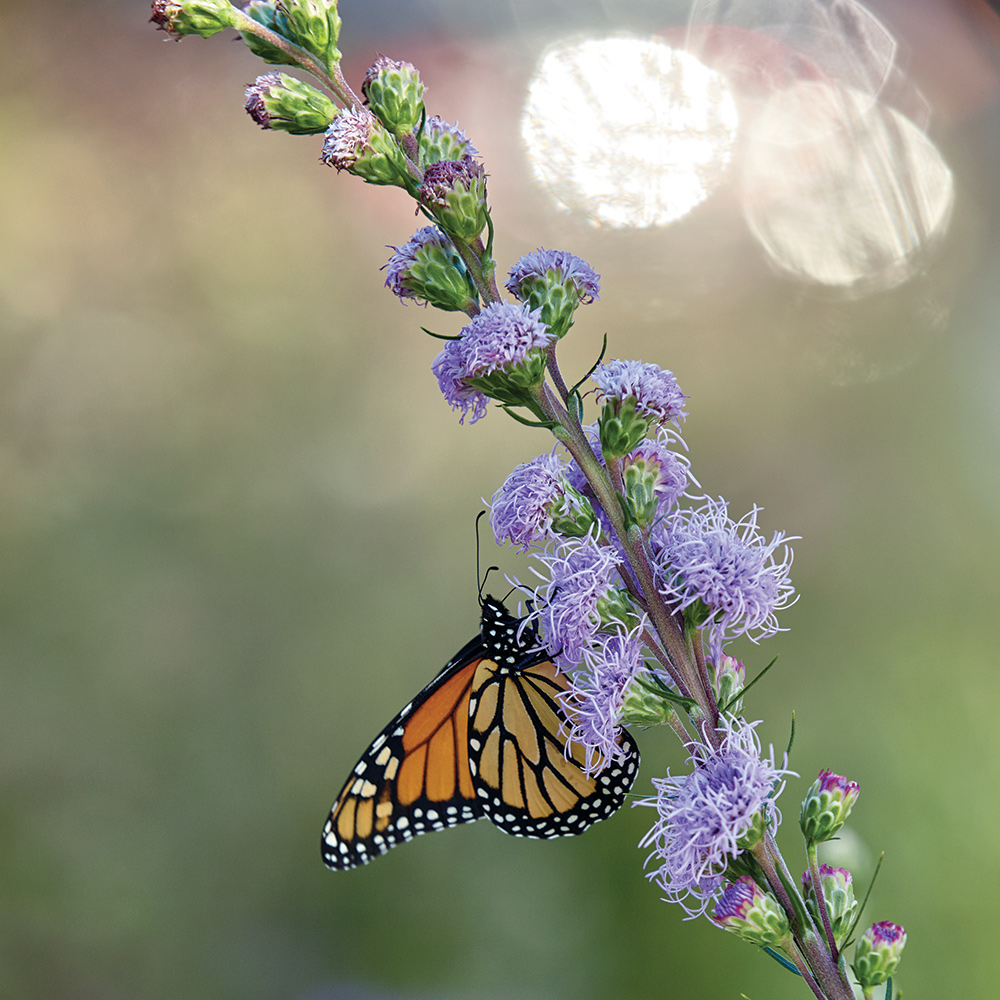
Rocky Mountain Liatris
Liatris ligulistylis
Zones: 3–8
Size: 3 to 5 feet tall and 1 to 2 feet wide
Conditions: Full sun; moist, well-drained soil
Native range: Central North America, western Canada
In my pollinator garden, Rocky Mountain liatris is the ultimate nectar plant for monarchs during its four- to six-week midsummer bloom period. I like to use this hardy perennial for a strong vertical presence, scattering multiple groupings throughout a garden design. Consistent moisture is ideal, although you will want to avoid soil that is poorly drained or wet in winter. In rich soil this species may gain significant height and require some staking, but the extra effort is worth it when the tufted, thistle-like flowers arrayed along the tall stems bring in droves of monarchs and other pollinators. Pest and disease resistance are bonuses.
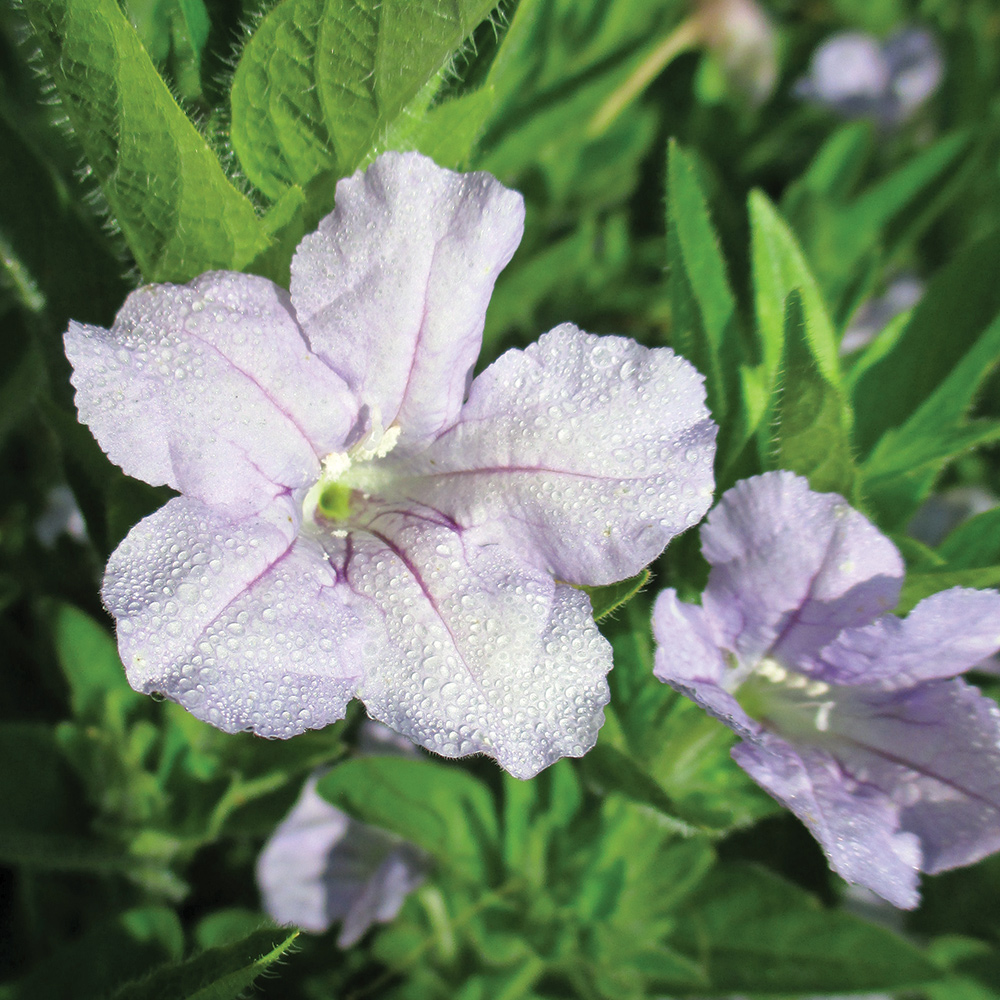
Wild Petunia
Ruellia humilis
Zones: 4–8
Size: 1 to 2 feet tall and wide
Conditions: Full sun to partial shade; adaptable to a wide range of well-drained soil types
Native range: Eastern and central United States
Attracting an array of pollinators, this hardy workhorse blooms through the hottest and driest part of the year, from June through August. With a habit that is compact, bushy, and slightly sprawling, wild petunia looks terrific in small groupings or massed as a ground cover. Its five-lobed, bell-shaped, lavender to lilac flowers appear along hairy stems. Hummingbirds are big fans of this durable perennial, while deer and rabbits aren’t overly interested. There are no serious insect or disease problems, but watch out for seedlings, which may pop up several feet away from the parent plant. If you don’t want these extra plants, just pull them up or relocate them.
Back to Natives for Summer Interest Collection
Mark Dwyer manages the Edgerton Hospital Healing Garden in Edgerton, Wisconsin, operates Landscape Prescriptions by MD, and is a regional reporter for FineGardening.com.
Fine Gardening Recommended Products

Lee Valley Large Gardener's Wash Basket
Fine Gardening receives a commission for items purchased through links on this site, including Amazon Associates and other affiliate advertising programs.
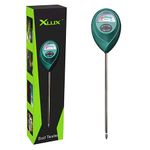
XLUX Soil Moisture Meter
Fine Gardening receives a commission for items purchased through links on this site, including Amazon Associates and other affiliate advertising programs.
- Simply insert the moisture meter into soil and you'll get the test result instantly
- Single probe, less hurts to the roots, doesn't dig up too much soil after test
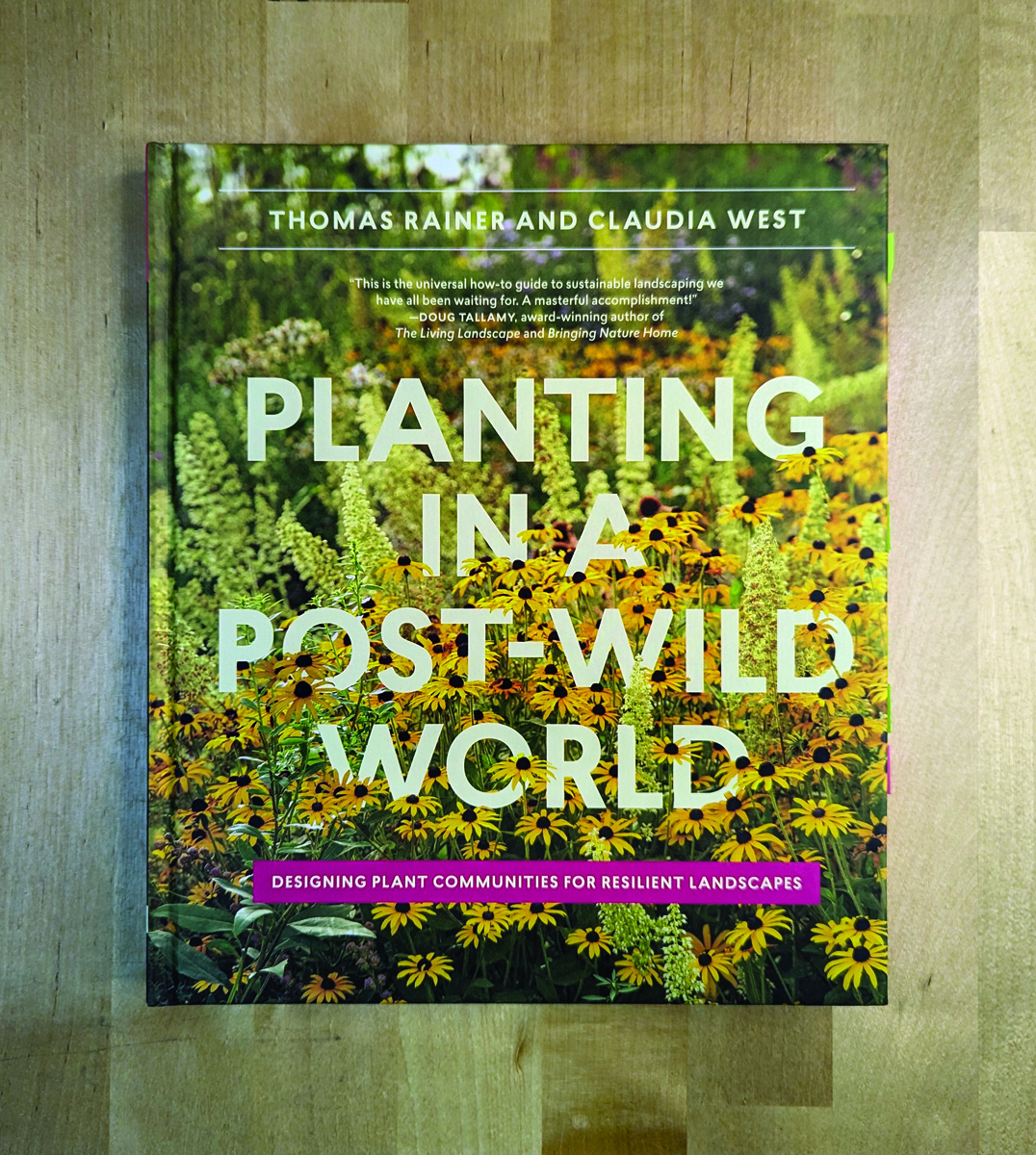
Planting in a Post-Wild World: Designing Plant Communities for Resilient Landscapes
Fine Gardening receives a commission for items purchased through links on this site, including Amazon Associates and other affiliate advertising programs.






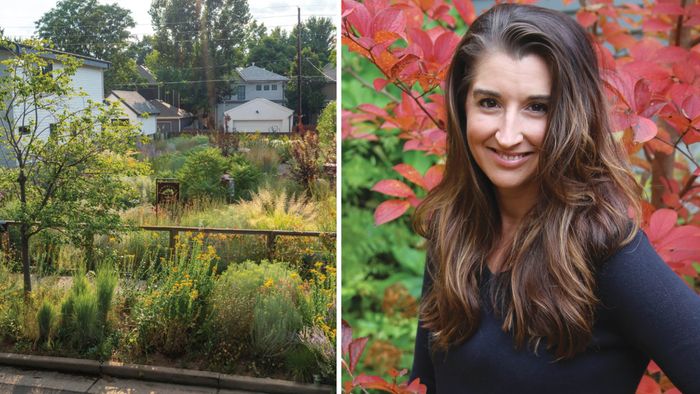
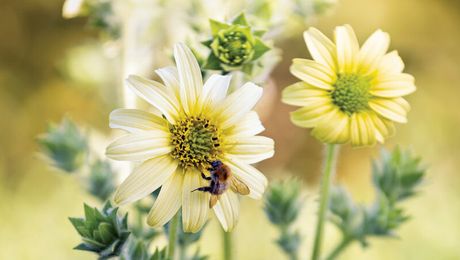











Comments
Log in or create an account to post a comment.
Sign up Log in